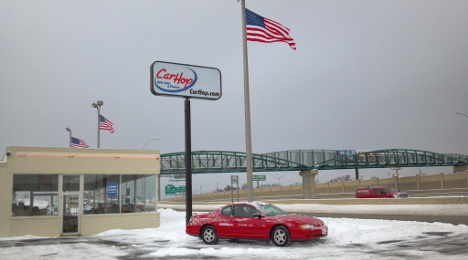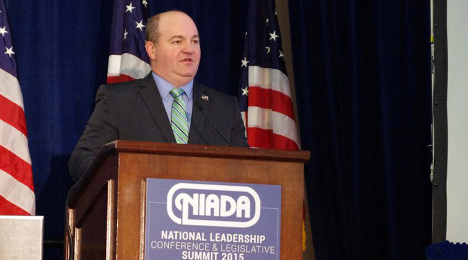On Jan. 21, the Consumer Financial Protection Bureau released a law enforcement settlement that should cause dealers to take notice. The settlement, involving Herbies Auto Sales, a single-lot BHPH dealership in Colorado, is noteworthy for its attack on pricing and sales practices that are common throughout the BHPH industry. Herbies did not admit to any of the CFPB’s allegations, but the allegations are nonetheless surprising.
The CFPB’s lawsuit claimed that Herbies violated the Truth in Lending Act and Regulation Z by not including in the APR and finance charge calculations, the cost of a warranty and a payment reminder device that it required credit customers, but not cash customers, to purchase. This allegation, by itself, is unremarkable. Compliance attorneys have long advised dealers that charges imposed only on credit customers may be deemed “hidden finance charges” under TILA.
But the bureau did not stop there. It also asserted that Herbies negotiated the sales price of vehicles it sold for cash but refused to negotiate prices in credit sales. According to the bureau, while that differential practice was not itself unlawful, Herbies should have included in the finance charge and APR the difference between what Herbies would have sold a particular vehicle for in a cash purchase (following negotiations), and what it actually sold the vehicle for in a credit sale. So, for example, if Herbie’s sold a car on credit for $5,000, it should have figured out how much lower the price would have been if the car had been sold for cash and added the difference to the finance charge. But no one — the bureau, Herbies, nor anyone else (perhaps a soothsayer) — could have predicted what Herbies would have negotiated in a hypothetical cash transaction for a specific vehicle. Not knowing the hypothetical negotiated cash sales price makes disclosing this “hidden finance charge” on TILA disclosures impossible. The bureau nonetheless alleged it as a violation.
The bureau also took aim at Herbies’ sales and pricing practices. As alleged, Herbies did not display a sales price on any of its vehicles. For credit sales, a customer qualified for a vehicle based on his or her needs and ability to pay. Specifically, Herbies identified a monthly, bi-weekly, or weekly payment amount that a customer agreed he or she could pay and allowed the customer to choose among vehicles that fit that payment amount. This practice, common in the BHPH industry, comports with how many used-car purchasers shop — based on the periodic payment amount rather than the total price. Herbies did disclose the full purchase price prior to closing a transaction, along with other disclosures required under federal and state law. At that point, any customer had the opportunity to decline the transaction and walk away. In the CFPB’s view, however, providing the purchase price only at the end of this process is an “abusive” practice, because consumers could not adequately protect their own interests by declining the transaction. Going forward, Herbies’ agreement with the Bureau requires it to post a purchase price on all automobiles available for sale. And Herbies’ must disclose several items of information to customers, some of which go beyond what is required by TILA/Reg Z, when making credit sales:
• The vehicle’s make, model, year and VIN;
• The duration of the financing contract;
• The timing, number, and dollar amount of periodic payments;
• The total number of payments to pay-off;
• The purchase price and finance charge;
• A list of any add-on products to be included in the financing; and
• The APR, including amounts for mandatory add-on products.
These disclosures must be made before or at the same time as Herbie’s “offering a specific automobile to the consumer or in any way soliciting a commitment from the consumer to purchase ….” The disclosures must be in writing and signed by the customer.
Many (ourselves included) will take issue with the CFPB’s targeting a small BHPH dealer for practices that are widespread throughout the industry. This is especially true in that those practices were not intended to, and in fact did not, harm consumers. Nonetheless, dealers should take away the following “lessons learned” from the CFPB’s enforcement action:
• Mixing cash and credit sales comes with a risk for BHPH dealers.
The bureau’s case hinged on the fact that Herbies made both cash and credit sales. What the settlement does not say, but what we know was the case, is that Herbies made very few cash sales at all, and even then those sales were for lower-quality, older inventory. But it was enough for the bureau to take action. If a dealer wants to offer both cash and credit sales, it would be wise to include the cost of any add-on products that are required only for credit sales in the finance charge and APR (in the process being mindful of state law finance charge caps and their applicability); and eliminate any policy that allows price negotiations for cash sales but not credit sales (or somehow come up with a way of measuring the impact of those negotiations on the relative prices of cash and credit sales).
• Bundling warranties will help your customers but it may hurt your compliance
Herbies provided its customers with a warranty in order to help them maintain the collateral and ensure that they had access to transportation. Its customers were overwhelmingly satisfied with the warranty program. Yet, because Herbies made a handful of cash sales for which the warranty was not required, the bureau viewed the warranty as a hidden finance charge.
• Pricing deals solely to the payment amount is a hazardous practice.
The CFPB’s concerns with Herbies’ sales process essentially distill to one fact: Herbies did not disclose a final sales price until consummation, when the customer was signing the paperwork. Many BHPH dealers do not post sales prices because they negotiate deals according to payment amount. Going forward, dealers should consider posting prices on vehicles and advising customers early on of the total price and other terms, even if the customers only care about the amount of the monthly payment. Although the specific disclosure requirements to which Herbie’s is now subject do not necessarily apply to all dealers, they provide a roadmap for what the bureau expects from BHPH dealers.
• No actor is too small.
Herbies, by any measure, was not a large-scale participant in the BHPH market. Those thinking they are too small and insignificant to draw attention from the CFPB should think again.
• If you ignore these lessons, you may pay a steep price.
Under its agreement with the CFPB, Herbies is required to pay a total of $700,000 to past purchasers, in the form of credits to those with active accounts and cash to those who have paid off their financing. In addition, the agreement assesses a $100,000 civil monetary penalty, payment of which is suspended due to Herbies’ financial condition. The CFPB routinely requires companies accused of wrongdoing to pay consumer redress and/or penalties. Investing in your compliance management system now will reap benefits down the road.
In the final analysis, we think the CFPB’s settlement with Herbies indicates that the bureau has problems with a business model that many BHPH dealers have followed for many years. While the CFPB has targeted BHPH practices in the past, i.e., the DriveTime and CarHop cases, those matters focused on arcane credit reporting issues rather than the business model itself. Herbie’s undoubtedly will not be the last bureau BHPH enforcement target.
Stay tuned for more developments on this front.
Joel Winston ([email protected]) and Allen Denson ([email protected]) are partners in the Washington, D.C. office of Hudson Cook, LLP. Based on an article from Spot Delivery. Copyright CounselorLibrary.com 2016, all rights reserved. Single publication rights only, to BHPH Report (Jan. 16).
Coming on the heels of another successful educational boot camp for new and veteran operators, the National Alliance of Buy-Here, Pay-Here Dealers has become an Authorized Education Provider for DBA International, the nonprofit trade association that represents more than 575 companies that purchase performing and nonperforming receivables on the secondary market.
The organizations explained that individuals in the receivables industry can earn continuing education credits toward DBA International certification for completion of in-person, live webinar, or online courses offered through NABD.
NABD indicated that it earned the Authorized Education Provider designation by demonstrating excellence in providing instruction to the BHPH industry. The association is dedicated to improving the quality of BHPH dealers through education, ongoing training, and by promoting the interests of self-finance dealers nationwide. NABD hosts two large, well-attended conferences annually; two of which DBA International board members have participated in as presenters this past year.
“NABD is very pleased that DBA International has selected us as an Authorized Education Provider. As a special interest group, we are organized to work with other associations, like DBA, for the betterment of the subprime auto finance industry,” NABD president and founder Ken Shilson.
“The BHPH industry faces several new legal and regulatory challenges, and we are working diligently to help our members successfully meet them” Shilson continued.
Our evolving relationship with DBA International will provide NABD members with access to experts in debt collection, compliance, loss mitigation, and with new capital market resources. It will benefit both organizations,” he went on to say.
NABD plans to have DBA International conduct an interactive workshop at its National BHPH Conference at the Wynn in Las Vegas on May 24 to 26.
“Auto finance receivables and the subprime market are growing at an unprecedented pace,” DBA International executive director Jan Steiger said.
“Many of our members already work in this area, and many more are exploring opportunities to expand in this asset class,” Steiger continued.
“As an Authorized Education Provider, our members will benefit from the expertise and resources of NABD’s education offerings and conferences as it simplifies the process for obtaining certification credits for our members,” she went on to say.
NABD completes ninth successful BHPH boot camp
NABD celebrated its run of hosting Boot Camps earlier this month with another successful event in Monroe, N.C., on Jan. 9 and Jan. 10.
The training took place at the operations of Ingram Walters and included tours of his entire operations. Attendees received procedures and human resources manuals, compliance materials, financial modeling software, and many other resources to help them operate more successfully.
“This is the only BHPH training where attendees can see a BHPH operation while learning in the classroom,” Shilson said.
“Attendees from around the nation attended this two-day session,” he continued. “Boot Camp sponsors included Auto Zone, Auto Search Technologies, Primalend, and Stars GPS, who made expert presentations during the training about reconditioning, Web design and social media, capital acquisition and GPS technology. CounselorLibrary and Hudson Cook provided the compliance materials to attendees.”
Shilson and Walters conducted the training and moderated the interactive classroom sessions.
“This was our ninth Boot Camp and attendees have been extremely complimentary of the quality and depth of the training they have received,” Shilson said. “All operating and financial aspects of running a successful BHPH operation are covered,”
Shilson added that attendees included both experienced and operators who are new to the industry. Networking during the Boot Camp was exceptional and all attendees received an individual critique of their business plans, as well as training takeaways.
“This training will help them compete more successfully in 2016 and beyond,” Shilson said.
NABD also announced that it is holding its 18th annual National BHPH Conference at the Wynn Resort & Casino in Las Vegas on May 24 to May 26.
For more information or to register, visit www.bhphinfo.com or call (832) 767-4759.
If operators have been putting off their plans to participate in a BHPH Boot Camp hosted by the National Alliance of Buy-Here, Pay-Here Dealers, they might miss their opportunity completely.
In a message to BHPH Report, NABD indicated its upcoming Boot Camp will be the final one the organization conducts. Limited space for operators still is available for the event that begins on Saturday.
The NABD Boot Camp is a two-day training session where attendees get the chance to see a dealership that’s been in business for more than 20 years in action. NABD co-founder Ingram Walters literally opens the doors to his back-end office where underwriting is completed, his reconditioning center and site of his related finance company for his operation, iCars, which is located just east of Charlotte, N.C.
NABD co-founder and president Ken Shilson also delves into a host of topics important to the success of BHPH dealers, including the establishment and monitoring of an RFC, what static pool analysis can reveal about a portfolio as well as what capital providers might be available.
The boot camp also provides ample time to interact with fellow attendees as well as the chance to sit down and have some one-on-one conversations with both Shilson and Walters.
To get more information, watch the above video, visit www.bhphinfo.com or call (832) 767-4759.
The National Independent Automobile Dealers Association became an even bigger organization on Friday as NIADA announced it has acquired the assets and operations of Sarasota, Fla.-based Leedom & Associates.
Officials highlighted the transaction — which was concluded Monday — transfers ownership of all Leedom 20 Groups, seminars, workshops, boot camps and consulting, as well as the Dealer Business Journal and the BHPH World Convention, to NIADA, effective immediately.
NIADA also announced that the association hired automotive industry veteran and longtime Leedom employee Chuck Bonanno as national director of 20 Group operations to run the new division and lead NIADA's efforts to grow and expand its offerings.
“NIADA is excited to build on an award-winning 20 Group platform that has been 20 years in the making," NIADA chief executive officer Steve Jordan said, “and we’re excited about the opportunity to add an array of other training and educational services to meet the needs of the independent auto dealer.
“Our closing this week culminates a year’s worth of due diligence and analysis by NIADA leadership that led to a unanimous decision by the NIADA executive committee to green-light the purchase,” Jordan continued.
“I have to give a lot of credit to the committee for their forward thinking and leadership to continue expanding NIADA to better serve our members and the industry by this acquisition,” he went on to say.
NIADA president Frank Fuzy also shared his perspective on the moves.
“The more we got into the research and projections, the more we realized how these services align perfectly with NIADA’s mission to provide best-in-class dealer training and education and how it could expand NIADA’s annual convention,” Fuzy said.
“Acquiring the BHPH World Convention fits perfectly into NIADA's desire to be the 'big tent' convention for all independent auto dealers. This will allow NIADA’s annual convention to be a one-stop shop for buy-here, pay-here, retail, subprime, Internet and all manner of independents,” Fuzy continued.
Leedom & Associates CEO and president Chris Leedom, who founded the company in 1995 and served as its first 20 Group moderator, said he is confident NIADA will take the operation to another level.
“It has been a most incredible and humbling journey to serve as the founder and first moderator of the independent dealer 20 Group in 1995 and enjoy the incredible success we have been so fortunate to achieve,” Leedom said.
“I have absolute confidence and certainty there is no better home for the 20 Group program and the related products and services than with NIADA,” he continued.
“With NIADA’s nearly 16,000 members in all 50 states and, most important, the commitment emanating from Steve Jordan and the executive committee, there is no doubt the 20 Group program will soar to new heights under the very capable and respected hands of Chuck Bonanno,” Leedom went on to say.
“Having said that, I am deeply committed to ensuring the legacy of this most respected 20 Group program in the industry continues and thrives under the NIADA banner,” he added.
Bonanno, who became Leedom & Associates' first employee in 2001 and served as a 20 Group moderator in the BHPH and automotive finance space for 13 years, said he is thrilled to be involved in the next chapter of the program’s growth.
“I am honored to be given the opportunity to manage and grow this world-class program Chris worked so hard to build over the last 20 years," Bonanno said.
“I am excited to now be able to offer 20 Groups to all independent dealers regardless of their business model. I am firm believer that 20 Group participation affords dealers the best training available, as the group members serve as a board of directors whose goal is to ensure success of all members,” he went on to say.
NABD president Ken Shilson added: “NABD congratulates NIADA on the acquisition of the assets and operations of Leedom and Associates. Our organization remains the industry’s largest special interest group dedicated exclusively to the buy-here, pay-here industry with more than 12,000 active members. We will continue to work closely with NIADA and other associations for the betterment of the self-finance used-car industry.
“Our goal is to provide the highest quality specialized training and support to BHPH operators, Membership in NABD is obtained by attending one of our training events and our members pay no dues. Information about upcoming training and other important industry information can be found at our website www.bhphinfo.com,” he said.
For more information about the deal above, contact Jordan with NIADA at (817) 640-3838 or Leedom at (941) 371-7999.
Buy-here, pay-here operators who report their customers’ successful payments to a credit bureau should take note. Allegedly not completing the process correctly according to the Consumer Financial Protection Bureau cost BHPH chain CarHop more than $6 million in penalties.
On Thursday, the CFPB said it’s taking action against CarHop, one of the country’s biggest buy-here, pay-here dealership networks, and its related finance company, Universal Acceptance Corp., for providing what the regulator deemed to be “damaging, inaccurate” consumer information to credit reporting companies.
Bureau officials indicated CarHop and its RFC also failed to provide accurate, positive credit information that it promised consumers it would supply to the credit reporting companies.
The CFPB’s investigation found that the companies inaccurately reported information for more than 84,000 accounts on a widespread and systemic basis. The CFPB is ordering the companies to cease their illegal activities and pay a $6,465,000 civil penalty.
In a statement on the company’s website, officials said, “We have agreed to this settlement, under which we have not admitted to the CFPB’s allegations, to move beyond the distraction of the investigation started in May of 2012.
“Although the CFPB has made a number of allegations, it did not find that any consumer is entitled to any damages,” CarHop continued.
“CarHop/UAC strives to comply with all applicable laws and regulations and provide exemplary service to our customers,” the BHPH operator went on to say. “Over the last several years and prior to the initiation of the CFPB investigation, we had taken and have continued to take steps to positively enhance our customers’ experience.
“We look forward to an ongoing relationship with the CFPB and hope to continue our constructive dialogue to improve our customer service and compliance practices in the years ahead,” officials added.
Minnesota-based CarHop, also known as Interstate Auto Group, is one of the largest BHPH dealers in the nation. CarHop has approximately 50 retail locations in approximately 15 states. CarHop sells vehicles primarily to customers with nonexistent or poor credit histories in need of subprime or deep subprime credit. It markets itself as a way for these consumers to rebuild or build-up good credit by saying it will provide positive payment histories to the credit reporting companies. Consumers who buy from CarHop frequently do so because they suffer from poor credit scores and other financial challenges.
Universal Acceptance, on behalf of CarHop, furnishes consumer account information to all three major consumer reporting companies on a monthly basis.
The CFPB said found that the company reported information that it knew or had reasonable cause to believe was inaccurate. The bureau indicated the company “inaccurately” furnished information for more than 84,000 accounts from about January 2009 until September 2013.
“With CarHop, consumers may not have even known about the damage to their credit profiles resulting from the erroneous reporting unless and until they checked their credit reports,” officials said.
Almost all the information the companies inaccurately furnished to the credit reporting companies could potentially harm customers. The CFPB contends the negative information could lower a consumer’s credit score, hamper their ability to obtain other credit and hurt their job prospects.
The CFPB also found that CarHop and Universal Acceptance violated the Fair Credit Reporting Act and the Consumer Financial Protection Act. Specifically, the companies:
1. Deceived consumers into believing they could build up good credit with CarHop
As part of its marketing and sales practices, the CFPB pointed out CarHop represented in writing to consumers that it reports “good credit” to the credit reporting companies. CarHop also emphasized to consumers its part in helping them build and maintain good credit.
“This appealed to consumers trying to build up their credit profiles with a history of on-time payments,” bureau officials said. “But the company, through Universal Acceptance Corporation, failed to furnish certain positive information, including information that would support ‘good credit,’ for tens of thousands of consumers.”
2. Provided inaccurate repossession information
The bureau stated CarHop customers had the right to voluntarily return their vehicles within 72 hours of purchase for a full refund without any penalties or additional obligations. But for some customers who returned their vehicles under this policy, Universal Acceptance did not accurately report to the credit reporting companies what really happened.
“Instead, the company inaccurately reported on numerous occasions that the cars had been repossessed or that the consumer still owed money,” officials said.
3. Incorrectly reported previous customers as still owing money
For consumers 72 hours past purchase, the bureau acknowledged CarHop often resolved disputes by having the customer return the vehicle. It then issued documentation to the customer saying they no longer had any financial obligations and had settled their account.
“But for hundreds of customers, in the months or even years that followed after they returned their vehicles, Universal Acceptance Corporation inaccurately furnished, on a monthly basis, information that said that the customer still had an outstanding balance,” bureau officials said.
“Sometimes, the company inaccurately reported the amount past due in continuously increasing amounts,” they added.
4. Failed to have reasonable written policies and procedures to ensure the accuracy of consumers’ credit information
The CFPB found Universal Acceptance had no written policies and procedures regarding the accuracy and integrity of the consumer information it furnished until early August 2013.
“The policies it adopted that month were not reasonable or appropriate to the nature, size, complexity, and scope of the company’s activities,” officials said.
More details of enforcement action
Pursuant to the Dodd-Frank Act, the CFPB has the authority to take action against institutions or individuals engaging in unfair, deceptive, or abusive acts or practices or that otherwise violate federal consumer financial laws. Under the terms of the CFPB orders released today, CarHop and Universal Acceptance must:
• Cease misrepresenting that they will report “good credit”: The companies must not misrepresent to customers that they will report “good credit” or other positive information to the credit reporting companies.
• Correct credit reporting information: If Universal Acceptance furnished information to a credit reporting company that it knew or had reasonable cause to believe was inaccurate, it must notify the credit reporting company of the inaccuracy. When it does so, it must either provide corrected information or request that the company delete the wrong information from the consumer’s file if accurate information is not available.
• Provide credit reports to harmed consumers: CarHop and Universal Acceptance must, for consumers who had incorrect information furnished about their accounts, arrange for consumers to obtain free credit reports from the credit reporting companies that received the inaccurate information.
• Implement an audit program to ensure laws are followed: CarHop and Universal Acceptance must implement a process for auditing information that Universal Acceptance furnishes to the credit reporting companies on a monthly basis. This process must include monitoring and evaluating the disputes the companies receive. The audit is designed to ensure the integrity and accuracy of the information.
• Pay a $6,465,000 civil penalty: CarHop and Universal Acceptance will pay a $6,465,000 penalty to the CFPB’s Civil Penalty Fund.
“Many consumers went to CarHop because they needed transportation and wanted to build up a good record of paying their bills,” CFPB director Richard Cordray said. “But CarHop and Universal Acceptance Corporation thwarted those expectations by inaccurately furnishing negative credit information.
“The CFPB will not stand for companies whose sloppy actions jeopardize consumers’ credit,” Cordray added.
J.D. Byrider recognized a total of 17 dealerships from 12 states as winners of the buy-here, pay-here store chain’s annual awards during its November convention in Orlando, Fla.
The company highlighted that its Franchise of the Year winners were chosen in three categories — Single (one location), Mid (two to three locations) and Multiple (more than three locations). The winners included:
• Single: Mike Marsh for his location in Traverse City, Mich.
• Mid: Mike Burgstone and team for their locations in Joliet, Glendale Heights, and East Dundee, Illinois. This is their second-consecutive Franchise of the Year award.
• Multiple: Russ Larson and team for his eight locations in Huntsville, Ala., Burlington, Cedar Rapids, Davenport and Des Moines, Iowa, Columbia and Springfield, Mo., and Omaha, Neb. This is their 10th-consecutive Franchise of the Year award.
J.D. Byrider also distributed 17 President’s Awards, which are given to individual locations based on store earnings, portfolio quality and customer service ratings. This year’s President’s Award winners are located in:
Alabama
— Tuscaloosa (2700 Skyland Blvd. E) – Steve and Jeanne Locklear, owners
Arkansas
— Sherwood (6055 Landers Rd.) – Mark Bedgood, Bill Evans, Matt Enderlin, Jeffrey Boone and Fred Nichols, owners
Illinois
— Joliet (2323 W. Jefferson St.) – Mike Burgstone, owner
Indiana
— Bloomington (2425 W. 3rd St.) – Terry Gerhart, Mike Bolin, Ben Becht, owners
Iowa
— Burlington (125 S. Roosevelt Road) – Russ Larson, Doug Stewart, Jeff Lee, Daryl Nelson and Gerod Meier, owners
— Davenport (925 W. Kimberly Road) – Sheila Schaub, Jeff Nickerson and Tedd Pless, owners
— Des Moines (2426 SE 14th St.) – Russ Larson, Jeff Lee, Doug Stewart, Daryl Nelson and Paul Newman, owners
Kentucky
— Owensboro (250 E 18th St.) – Jeff Anderson, owner
Massachusetts
— Dorchester (710 Morrissey Blvd.) – Trevor Wiggins, Jack Correia, Kelly Wiggins, owner
Michigan
— Traverse City (3536 North U.S. 31 South) – Mike Marsh, owner
Ohio
— Euclid (20941 Euclid Ave.) – Dennis Ange, owner
— Akron (777 Canton Road) – Chris McPhie, owner
— Mansfield (1810 W. 4th St.) – Chris McPhie, owner
— Wooster (4536 Cleveland Road) – Chris McPhie, owner
South Carolina
— Columbia (3815 W. Beltline Blvd.) – J.T. and Jonathan Gandolfo, owners
Virginia
— Roanoke (3141 Peters Creek Road) – Gary Duncan, owner
Wisconsin
— Appleton (2301 W. College Ave.) – Russ Darrow, Jr., owner
“We are extremely proud of each of this year’s winners,” said Tom Welter, vice president of franchising for J.D. Byrider. “They have risen to the top of our dealer community with their quality service to customers.
“These awards are a great reminder of the strength within our franchise system and our drive for improvement year after year,” Welter went on to say.
Too often dealers focus on technology tools and forget about the basic “best practices” that can make or break the business. When it comes to the obligation to protect a customer’s personal information, it’s the failure to pay attention to the details that can get you in trouble. Use this guide to ensure that your customers’ sensitive personal information and your critical business data are protected.
Security of facility
The layout of the dealership presents lots of ripe opportunities for the compromise of information. Thought should be given to what type of information is handled by employees that interact directly with the public, thus increasing the odds that visitors will be in proximity to documents they shouldn’t see. Every dealership should have a “clean desk” policy which prohibits sensitive information from being kept on a desk when left unattended, and employees should have access to locked drawers and file cabinets in which to store papers when stepping away from the desk.
Consider whether all employees should have access to the entire facility, or whether access can be restricted by job description so that employees aren’t free to enter areas where they have no reason to go. Sale’s personnel don’t have much of a reason to have unfettered access to the collections department, nor would collections personnel have reason to freely walk through the accounting office. In a smaller dealership, it may not be practical to restrict access so it’s important to consider proper placement of personnel and the other measures discussed herein.
Are there written policies and procedures in place to limit the access of third-party vendors such as delivery personnel, repairmen and other service providers? Are they required to physically sign in and out when they come and go? Are they escorted back to the work area and supervised, or are they left to wander around the facility? What kind of due diligence is done to investigate these vendors?
Don’t choose convenience over security. They are both important. Put copy machines, fax machines and scanners behind locked doors. Put good shredders next to every waste paper basket. These are simple steps that can eliminate problems.
Build a culture of security
Employees are probably the biggest point of vulnerability for a dealership so conduct robust pre-employment screening to make sure your future employees are trustworthy. Have all employees sign a confidentiality agreement that sets forth how they are to handle confidential information and restricts their use of such information in any capacity. Test the employees at least annually on their confidentiality obligations and, upon separation, provide them with a copy of the signed agreement and remind them of their obligations.
Make sure to have an employee handbook that has sections dealing with information security, and have a strong training program that includes education on security concerns and then test every employee on those standards and then document the results in personnel files. “Hot button” issues that should be referenced in these training materials include: What are the company policies regarding use of thumb drives, camera phones, and any other portable devices? Are employees allowed to access the internet while at work and, if so, is access restricted to certain sites? Are employees allowed to access their personnel email accounts while at work? Are employees allowed to email company information to their personal email accounts? Can employees download data, reports or customer information to portable devices such as tablets and phones? Consider these types of issues because your employees can literally carry your business in their pockets.
Dealerships are vulnerable to an information breach upon the separation of an employee so have a sophisticated separation process that is systematic, routine and applied consistently no matter the job description. Critical items should include a list of all parties that should be notified of the exit; list of all systems and programs to which employee has access; list of company property in their possession; disable system access and recover keys and badges; delete or redirect accounts, including VPN, network, email and voicemail. Additionally, remember to provide the exiting employee with a copy of the confidentiality agreement they signed during their employment and remind them of the serious consequences of any breach.
Make technology secure
You’ve bought all of this technology to protect your business, but make sure it won’t do you harm. Check you have an appropriately sophisticated firewall for your business. This will keep the bad guys out of your system, or at least it should. Next, give thought to whether or not wireless access is provided. A lot of dealerships provide it as a convenience to its customers and employees; however, outsiders can connect to your system and that can be dangerous so it may be a good idea to turn off wireless access outside of business hours.
Consider installing tracking tools on mobile devices such as phones, laptops and tablets. These allow for locating the device when missing, and can also be used to remotely wipe data from the device should the need arise. Also, consider what type of information employees are allowed to store on a device. Not all job descriptions are created equal. Some are much more sensitive than others and deserving of more sophisticated encryption technology being placed on their devices.
Be sure to have policies and procedures related to employee use of email and the network. There should be a prohibition against using shared logins; each employee should have a unique username so that their activities can be identified and they can be held accountable. There should also be an aggressive password policy that requires it to be changed on a regular basis, such as monthly or quarterly. Have a policy that requires automatic screensavers after brief periods of inactivity, such as 10 to 20 minutes. Again, it’s worth the small inconvenience to be assured that your computer stations won’t be open when employees leave their desks for extended periods of time.
Conclusions
The days of simply locking up the dealership at night are over. Take the initiative and examine not only the policies and procedures that govern information security, but also the practical aspects of how the dealership is run. By attacking all three of these prongs, a dealer can put itself in the best position to make sure its information and customers are protected.
Steve Levine is chief legal and compliance officer of Sigma Payment Solutions and SecureClose. He can be reached at (817) 875-0621 or [email protected].
The National Alliance of Buy-Here, Pay-Here Dealers gathered feedback from nine attendees who came to its East Coast Conference last week in Orlando, Fla., that focused on best practices and compliance.
Perhaps one comment from an operator in Indiana summarized what NABD looks to accomplish with this latest event that “featured the greatest collection of legal talent in the 18-year history of NABD,” according to founder and president Ken Shilson.
“I always bring all my location managers with me to NABD conferences. After attending these sessions, they seem to better understand the importance and necessity of what we ask them to do on a daily basis,” said Jim Everett, who runs his BHPH business in Greenwood, Ind.
Attorneys Dave Bafumo, Trish Cacciola, Susan Chylik, Allen Denson, Mark Edelman, Tom Hudson, Eric Johnson, Terry O’Loughlin and Shaun Peterson explained and discussed the current legal and regulatory issues with attendees that impact the BHPH industry today.
“These legal experts really prepared attendees for all the important compliance challenges ahead,” Shilson said.
Attendees who attended the three-day event and completed the compliance sessions will receive a compliance certificate which evidences their participation.
Additionally, Hudson created a 12-step checklist to help attendees down the path to compliance after the conference.
The best operating practices sessions featured a panel presentation by John Neery of CARite, Terry Bowdler and George Klinke of LHPH as well as Hudson.
“These panelists did an outstanding job of explaining the pros and cons of this BHPH alternative business model,” Shilson said.
Other best practices sessions included:
— Web tips to regain market share
— Technology solutions
— A how-to on dealer advertising
— Accounting and tax update
— Tax refund tips
— An Autotrader presentation on its BHPH Finance Center
— Capital market alternative discussion groups
— Sourcing, financing and reconditioning inventory techniques
— A benchmarks/trends update
— Phone skill tips
— A current industry issues discussion
— A panel covering how regulatory issues may change BHPH
— An underwriting best practices panel.
“Attendee evaluations unanimously indicated that the conference sessions successfully met all their learning objectives,” Shilson said.
Emily Feathers of Powell, Wyo., supported Shilson's claim by saying, “I came to get a general education on current and relevant topics and thought the conference was very informative. All the speakers did a great job.”
Nick Hall from Lorain, Ohio, noted, “On compliance, the complaint issue was emphasized and it brought awareness to the importance of handling complaints efficiently and timely.”
Dave Rooker, also from Lorain, Ohio, added “I thought that there was really good coverage of many topics that I previously did not know much about.”
A sold out exhibit hall featured more than 60 exhibitors and sponsors who offered all the latest products and services to make attendees more efficient and profitable in the future. The exhibit hall included two receptions, coffees, and a breakfast that enabled attendees to network with industry experts, sponsors and others.
NABD announced that it will hold a Buy Here Pay Here Boot Camp on Jan. 9 and Jan. 10 at the iCars BHPH dealership owned by Ingram Walters in Charlotte, N.C., where attendees can “see and learn” through hands-on training. Shilson said space is limited, so operators are encouraged to call NABD headquarters at (832) 767-4759 while space remains available.
Special discounts to the Boot Camp are available for operators who attended the East Coast Conference.
NABD will also hold its 18th annual National Buy-Here, Pay-Here Conference at Wynn Hotel and Casino in Las Vegas on May 24-26.
For more information on these events, or to download conference presentations, visit www.bhphinfo.com.
As the National Independent Automobile Dealers Association elevated Steve Jordan to the position of chief executive officer, NIADA also announced Shaun Petersen — who has served as outside regulatory counsel since 2012 — will join the association staff on a full-time basis.
Officials said Petersen will become NIADA’s senior vice president of legal and government affairs effective Jan. 1.
The announcements were made this week during the NIADA National Leadership Conference and Legislative Summit at the Omni Shoreham Hotel in Washington, D.C.
Petersen is a former Ohio deputy attorney general who has done extensive legal work in the automotive industry. He has been working with NIADA on regulatory and compliance issues as a partner with the Ohio law firm of Mac Murray, Petersen & Shuster.
“My obligation to the association is to identify the best talent around and bring those people into the fold,” Jordan said. “Certainly, we appreciate the hard work and progress Shaun has made in helping us grow our voice here in Washington with federal regulators.
“He’s doing a phenomenal job, and I'm excited to have him join the team full time,” Jordan continued.
Petersen will continue his duties in helping shape NIADA's policies regarding legislative and regulatory issues and establishing relationships with governmental entities, and will add the role of general counsel for the association.
“I’m really excited about the opportunity,” Petersen said. “The regulatory, legislative and public policy aspects of the used car industry are getting more attention than ever, so it’s vital to have a full-time presence to manage those affairs and ensure we’re minding the shop.
“The past four years on a part-time basis have been fantastic. I'm looking forward to doing it as a full-time job,” added Petersen, who along with Jordan will be panelists during the East Coast Conference hosted by the National Alliance of Buy-Here, Pay-Here Dealers. The conference begins on Tuesday in Orlando, Fla.
Meanwhile, the association highlighted Jordan was named CEO by a unanimous vote of the NIADA executive committee at its recent meeting. He joined NIADA in 2011 as chief operating officer and took over the association’s operations as executive vice president in 2013 when Michael Linn retired as CEO to become CEO emeritus.
As CEO, the association indicated Jordan will remain in charge of NIADA's day-to-day operations as well as heading the association's direction and priorities for the future.
“Our intention from the beginning was always to phase Steve into the CEO job,” said NIADA Region II vice president Henry Mullinax, a member of the executive committee. “That process has now come to fruition.
“Steve’s done a fantastic job. He’s the future of NIADA,” Mullinax continued. “He’s made decisions that have moved us forward tremendously, like coming here to Washington. Given where the industry is right now, that is probably the most important decision we’ve made. And that’s because of Steve Jordan. He’s established his leadership and his ability and has been a tremendous asset for us.”
Along with appearing at NABD’s upcoming event, Jordan also will be representing NIADA at Used Car Week, which runs from Nov. 16-20 at the Phoenician in Scottsdale, Ariz. NIADA is one of Used Car Week’s industry partners, and Jordan will be part of the National Remarketing Conference during a session titled, “The National Panel: Opportunities and Hurdles Facing the American Used Car Industry in 2016.”
Ken Shilson is giving operators an offer perhaps most of their customers might want — a money-back guarantee.
To reinforce what the National Alliance of Buy-Here, Pay-Here Dealers is orchestrating for its upcoming East Coast Conference, Shilson indicated this week that dealer attendees will be able to gather these seven elements to help their business or the NABD founder and president will give them a refund.
Shilson highlighted BHPH operators who come to the event set for Nov. 3-5 in Orlando, Fla., will receive a 12-step roadmap to cost-effective BHPH compliance; a strategy that operators can take back to their stores and implement now.
Furthermore, Shilson pointed out attendees will gather best operating practice tips to compete more successfully in 2016, including:
— Underwriting recommendations that will help “keep them sold”
— Marketing strategies to gain lost market share
— New inventory sourcing and reconditioning tools and techniques for the selling season
— Personal networking opportunities with leading capital providers
— New technology products and services in a sold-out exhibit hall
— Industry benchmarks and other BHPH trends
“Both the workshops and the general sessions feature new content never presented before, and important information that will help attendees succeed,” Shilson said.
The NABD East Coast Conference is scheduled for Nov. 3-5 at the Wyndham Orlando Resort International Drive in Orlando, Fla.
The conference ends at 1 p.m. on Nov. 5 to facilitate travel.
NABD highlighted the Wyndham Orlando Resort International Drive is newly renovated and located next to the hottest new attraction, the Orlando Eye. Shuttle service is available to Disney properties and Universal Studios.
NABD has arranged discounted room rates of only $149 per night with no resort fees, but the special offer expires this week. Attendees can go online to make reservations or by calling (800) 421-8001 and referencing code NABD.
The complete agenda and speaker information is posted and will be continually updated on the NABD website at www.bhphinfo.com. Registrations can be made at the website or by calling (832) 767-4759.
“Don’t miss this conference is you want to be more successful in 2016,” said Shilson, who discussed more highlights about the upcoming conference in the video at the top of this page.











